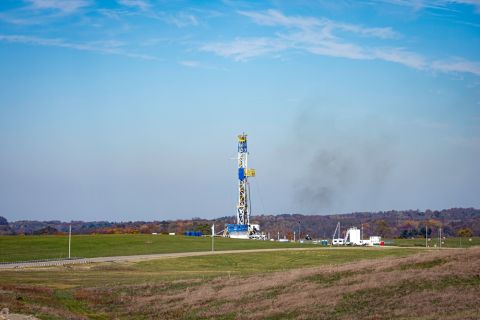Shifting politics in many South American countries are creating problems for residents and difficult working conditions for oil companies. Representing 10% of the world's oil reserves and 4.3% of gas reserves, the region seems prime for development, given the growing instability of the Middle East. However, left-leaning policies spearheaded by new political leaders are having adverse affects on long-term investment. "Nationalist fervor sweeping South America can temper investments," KPMG partner Jose Aldrich told attendees at the KPMG Global Energy conference in Houston recently. With Venezuelan president Hugo Chavez raising taxes on oil production to 50% and forcing foreign companies to join joint ventures with the national oil company, Aldrich warned that the country could end up alienating foreign investors and in turn ruin its own economy. "Countries that booted out foreign oil companies rarely tend to produce at the same levels before nationalizing," Aldrich said. In Venezuela, the government is continuing to increase its control of the oil business, with royalty taxes on mixed companies raised to 33.33%, though hydrocarbon activities still remain exempt from municipal taxes. There is also a 1% conacid tax based on annual earnings to fund Venezuelan drug-prevention programs. Bolivian president Evo Morales nationalized hydrocarbon production in May, forcing foreign companies to renegotiate their contracts or face expulsion. The four major producers operating in the country are Petrobras, Repsol YPF, BG Group Plc and Total SA. KPMG Bolivian partner Sergio Ruizmeir said the situation has escalated to the point of the social structure threatening to come undone. Brazilian national oil company Petrobras has refused to renegotiate its contract, which could halt 90% of gas production in the country and possibly lead to a recession in the country. In Argentina, an economic crisis in 2002 lead to the abandonment of free-market policies, such as utility prices being frozen. While the country remains flexible on limited liability corporations and joint ventures, and has initiated an ease on tax burdens, foreign debt must still be deposited for a year, there is a 35% income tax for dividends related to the oil business, and services performed by non-residents are subject to a 24.5% withholding tax. Apache Corp. tax director James E. Toups said, "In Argentina, it's really easy to get money into the country, but very difficult to get it out." Not that extraction of resources from South America is a problem for foreign companies alone. Despite Brazil's much-touted self-sufficiency in energy, the country is still forced to export 80% of its oil to foreign refineries to be turned into useable gasoline and other products.
Recommended Reading
WildFire Energy I Buys Apache’s Eagle Ford, Austin Chalk Assets
2024-05-21 - Private producer WildFire Energy I, backed by Warburg Pincus and Kayne Anderson, scooped up Apache’s portfolio in the eastern Eagle Ford and Austin Chalk plays.
Multi-basin Mayhem: Conoco, Marathon Tout Eagle Ford, Bakken Runway
2024-05-31 - ConocoPhillips and Marathon Oil—which both trace their roots to the breakup of John D. Rockefeller’s Standard Oil Trust more than a century ago—are combining in a $22.5 billion deal.
APA Corp. Sells $700MM in Non-core Permian, Eagle Ford Assets
2024-05-20 - APA Corp. and subsidiary Apache are selling more than $700 million in non-core assets in the Permian Basin and Eagle Ford Shale—part of a plan to reduce debt after a $4.5 billion acquisition of Callon Petroleum.
Global Partners Buys Four Liquid Energy Terminals from Gulf Oil
2024-04-10 - Global Partners initially set out to buy five terminals from Gulf Oil but the purchase of a terminal in Portland was abandoned after antitrust concerns were raised by the FTC and the Maine attorney general.
Ohio Oil, Appalachia Gas Plays Ripe for Consolidation
2024-04-09 - With buyers “starved” for top-tier natural gas assets, Appalachia could become a dealmaking hotspot in the coming years. Operators, analysts and investors are also closely watching what comes out of the ground in the Ohio Utica oil fairway.





